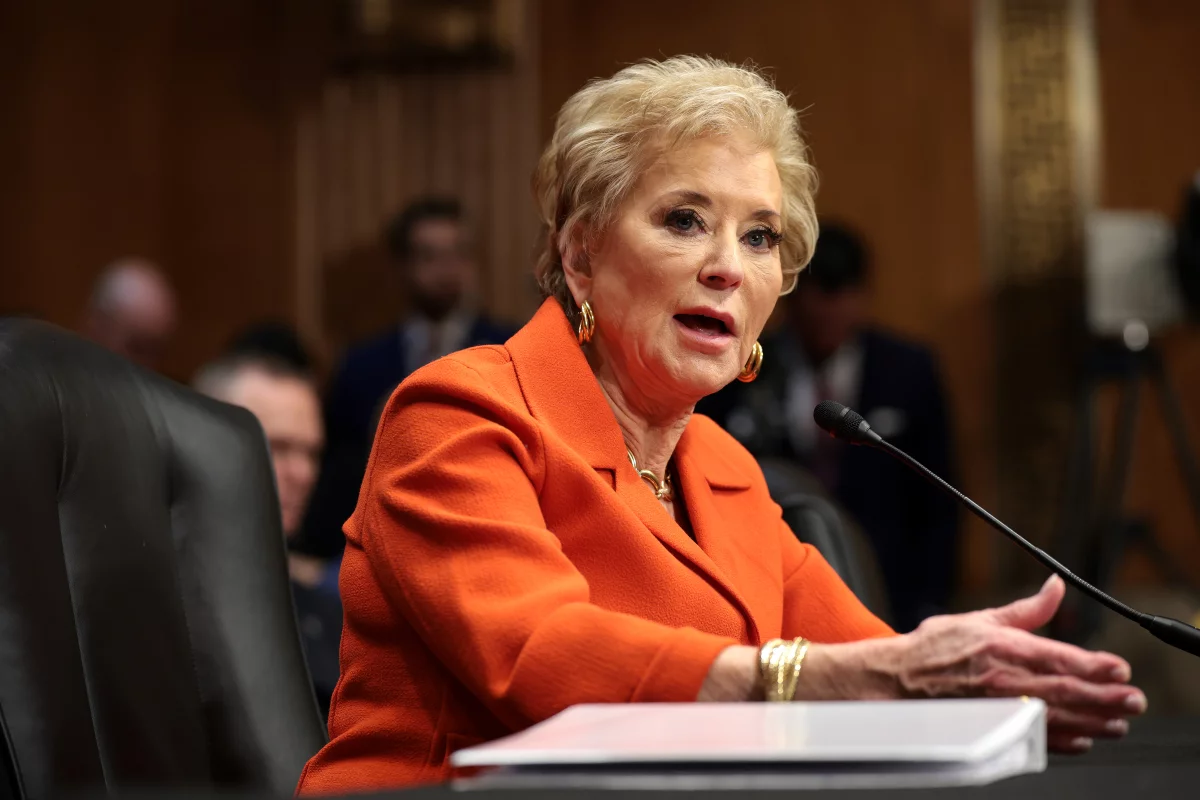
- Details
- By Neely Bardwell
The Senate Committee on Health, Education, Labor, and Pensions (HELP) voted 12-11 along party lines on Thursday to advance Linda McMahon’s nomination for education secretary. Her nomination will be considered by the full U.S. Senate.
During her nomination process, McMahon recently cited Indian boarding schools as an argument for why education should be locally controlled, according to written responses she provided to the Senate.
Indian Boarding Schools represent a deeply troubling chapter in U.S. history, spanning 150 years of forced assimilation that stripped countless Native American children of their culture, language, and identity. Many of these schools were federally operated. McMahon described this history as “a key example” of why education should be managed at the local level rather than by the federal government.
In written answers submitted Tuesday to members of the HELP Committee, McMahon responded to questions senators posed after her confirmation hearing last week. While her responses have not been publicly released, HuffPost obtained a copy of her answers regarding tribal education.
One question asked: “What is your understanding of the events that took place during the Indian Boarding School era?”
McMahon stated that she condemns this period of American history but placed blame on federal officials for the systemic removal and assimilation of Native children.
“I condemn the actions of U.S. government officials who removed Indian children from their homes, against the wills of their parents and families, to force them to attend boarding schools, in many instances in other states,” she wrote. “This is a key example of why local communities should direct education systems, not Washington bureaucrats.”
While many boarding schools were federally operated, religious organizations—particularly Christian and Catholic churches—also played a significant role in running these institutions.
McMahon was also asked about the federal government’s trust responsibility for tribal education. In her response, she incorrectly attributed the oversight of Indian education solely to the Department of the Interior’s Bureau of Indian Education, failing to acknowledge the Department of Education’s role.
“The federal government has an obligation to provide appropriate educational facilities to recognized tribes,” McMahon wrote. “While the vast majority of this work is carried out by the Bureau of Indian Education at the Department of the Interior, the Department of Education does maintain grant programs that support tribal education.”
Currently, only about seven percent of Native American students attend Bureau of Indian Education schools, while about 90 percent are enrolled in traditional public schools funded through Department of Education programs.
The White House and the Department of Education did not respond to requests for comment.
More Stories Like This
Bard College Center for Indigenous Studies (CfIS) Hosts Annual Symposium With Keynote Speaker Miranda Belarde-Lewis on March 9–10American Indian College Fund Announces Spring 2026 Faculty Fellow Cohort
Navajo Nation Signs $19 Million Diné Higher Education Grant Fund Act into Law
Dr. Shelly C. Lowe to Be Inaugurated as IAIA President March 26–27
Tlingit Language Courses Expand for Students to Learn With Families At-Home
Help us defend tribal sovereignty.
At Native News Online, our mission is rooted in telling the stories that strengthen sovereignty and uplift Indigenous voices — not just at year’s end, but every single day.
Because of your generosity last year, we were able to keep our reporters on the ground in tribal communities, at national gatherings and in the halls of Congress — covering the issues that matter most to Indian Country: sovereignty, culture, education, health and economic opportunity.
That support sustained us through a tough year in 2025. Now, as we look to the year ahead, we need your help right now to ensure warrior journalism remains strong — reporting that defends tribal sovereignty, amplifies Native truth, and holds power accountable.
 The stakes couldn't be higher. Your support keeps Native voices heard, Native stories told and Native sovereignty defended.
The stakes couldn't be higher. Your support keeps Native voices heard, Native stories told and Native sovereignty defended.
Stand with Warrior Journalism today.
Levi Rickert (Potawatomi), Editor & Publisher


